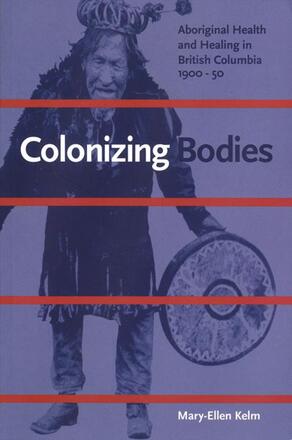
Colonizing Bodies
Aboriginal Health and Healing in British Columbia, 1900-50
Description
Using postmodern and postcolonial conceptions of the body and the power relations of colonization, Kelm shows how a pluralistic medical system evolved among Canada’s most populous Aboriginal population. She explores the effect which Canada’s Indian policy has had on Aboriginal bodies and considers how humanitarianism and colonial medicine were used to pathologize Aboriginal bodies and institute a regime of doctors, hospitals, and field matrons, all working to encourage assimilation. In this detailed but highly readable ethnohistory, Kelm reveals how Aboriginal people were able to resist and alter these forces in order to preserve their own cultural understanding of their bodies, disease, and medicine.
Reviews
A worthy read, a sophisticated, interdisciplinary analysis of the health situation of Aboriginal peoples and the way in which whites and Aboriginals themselves responded to it … What is fascinating about Kelm’s analysis is her ability to make apparent the interconnectedness of issues … She has had to detail the many ways in which First Nations people were victims, but never totally lost agency. While Native agency is certainly present in the study, the overwhelming tone is one of condemnation for what was done to the First Nations.
- Wendy Mitchinson
Colonizing Bodies is an innovative and engaging book … an important contribution to the history of First Nations and to health care history … Kelm critically examines the available evidence, suggesting that government reports and letters do not describe the “truth” of aboriginal health but do provide an indication of what was shaping federal health policy … the book is rich in detail … Kelm grounds this book in a breadth of archival documents and she skillfully and strategically deploys evidence from aboriginal elders to make her arguments even more compelling … Persons interested in the history of First Nations and the provision of state health services will certainly find this to be a fascinating study, but it should also enjoy broad appeal as a case study of how colonialism is culturally constructed. It is, in sum, a tremendously important contribution. The analysis is elegant and it is a book that serves both as model and inspiration for the sophisticated study of health care in the twentieth century.
- Peter Twohig
By discrediting the destructive and paternalistic deficit model, Kelm plays an important role in pointing communities, academics, and public health officials to the vital task of continuing to recognize and support the sources of community resilience and, ultimately, health.
- BC Studies